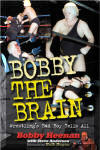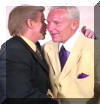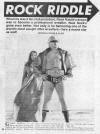There was usually a monitor in the dressing rooms for the TV tapings. When the “news” was on, we would make a game of deciphering it. “Hey, watch this, guys,” one of the wrestlers would say, pointing at the TV monitor. At a certain point, there would be a collective, “Ooooh, yes, there’s the ‘swerve.’” Usually it would be obvious to us, at that point, what the “hidden agenda” was. The purpose of their “manipulation” became blatantly clear. We found it amusing that the “zombified” public never “got it.” I had figured it out even before I entered the world of professional wrestling. I had very little interest in the watching the “news,” but when I did, I asked myself two questions: (1) “What do the want the masses to believe by presenting the ‘story’ in such a manner?” and (2) “Who benefits financially and/or power-wise if the public believes it?” Unfortunately, it was usually very easy to answer the questions. Others would say that I and the other wrestlers were jaded and cynical. We knew we were simply realists. Our world was the world of professional wrestling – the trusted world. We knew enough to never quite trust the “outside world.”
In the AWA (American Wrestling Association) I met the one man whose sense of humor surpasses all others. He was already a legend in our business. He was the funniest person I had ever met, and he still is. I had the pleasure of spending time in dressing rooms, on the road, and even in the ring with this amazing icon of professional wrestling. I am honored to call this man a friend. Even non-fans know his name: Bobby “The Brain” Heenan. I had
the opportunity to do a televised interview with Bobby at a CAC
Wrestlers’ Yearly Reunion and Awards Dinner at the Riviera Hotel and This was producer Peter Redford’s first up-close encounter with professional wrestlers. Somewhat bewildered, he was rapidly shifting his attention to me, then to Bobby, then to me, seemingly at a loss as to what to do. Both Bobby and I smiled. If Peter reacted, so would the fans who saw the tape. We came back to our respective positions in front of the camera to continue the interview. “Bobby,” I began, “we’re in the development phase of producing a feature film about late 1970s professional wrestling – the way it used to be, the camaraderie, the friendship, the family – all of the stuff we had before wrestling became whatever it is now. So, Bobby, would you share with the people, especially the people under thirty, who have no idea what professional wrestling was, some of the feelings about that era?”
I was a little surprised by Bobby’s reaction. I raised an eyebrow. “But, when a guy gets in trouble sometimes,” Bobby continued, “or needs a helping hand, yeah, we go help the guy. But, basically, it’s cut-throat business.” Next week, I’ll continue the interview. It gets more and more interesting as it progresses. Until then, keep those e-mails coming. |
|||||||||||||
|
This column welcomes your wrestling-related
questions. You may contact the author via email: RockRiddle@hotmail.com
or
Rock@HollywoodSuccess.com.
Be sure to put "Wrestling Question" in the subject line.
© 2006 Rock Riddle & Hollywood Success. |
|||||||||||||
| Previous Column | Wrestling Revue Home Page | Next Column | |||||||||||
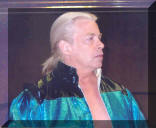
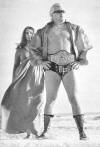
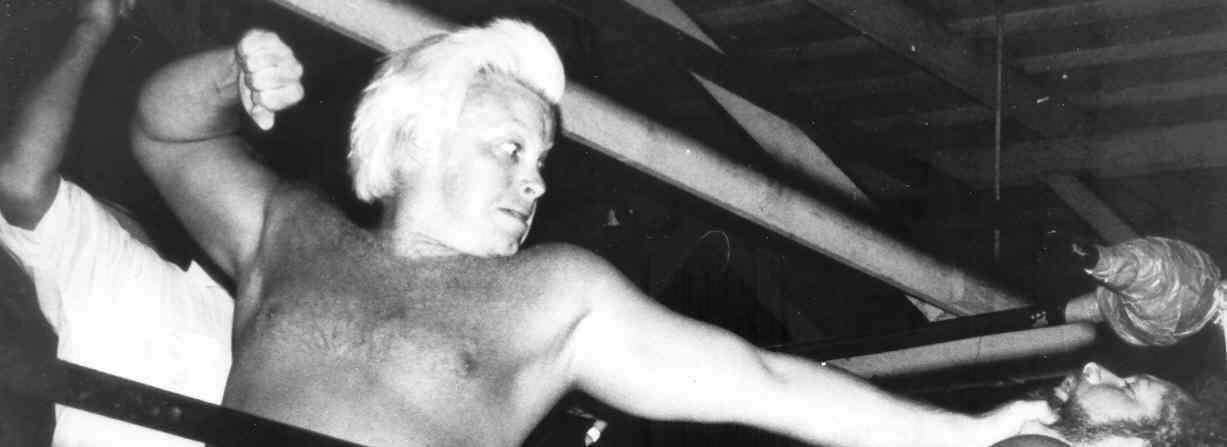


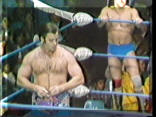
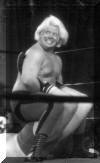
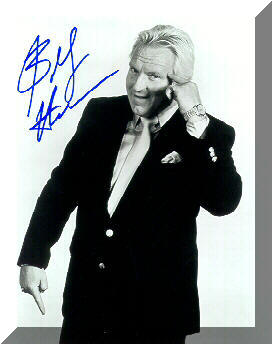 If
you were in the presence of professional wrestlers and were to say
something nice about a highly successful non-wrestler – for example,
a major movie star or the president of a country -- you would most
likely to be met with, “He’s nothing! He never beat anybody!” It
was a statement which was one-third joke and two-thirds actual
belief. To us, the wrestling world was real and the outside or
so-called “real” world was totally fixed. The conspiracy theorists
had nothing on the wrestlers. It was more obvious to us than
anyone; we knew the public was being manipulated.
If
you were in the presence of professional wrestlers and were to say
something nice about a highly successful non-wrestler – for example,
a major movie star or the president of a country -- you would most
likely to be met with, “He’s nothing! He never beat anybody!” It
was a statement which was one-third joke and two-thirds actual
belief. To us, the wrestling world was real and the outside or
so-called “real” world was totally fixed. The conspiracy theorists
had nothing on the wrestlers. It was more obvious to us than
anyone; we knew the public was being manipulated.  What
kept us happy and balanced was our highly developed sense of humor.
Seeing humor in all situations helps us to appreciate the gift of
life we have all been given. As professional wrestlers, we put our
lives at risk every time we climb into the squared circle. Injuries
and death are a very real part of the business. In professions
where the possibility of serious injury and death exists, highly
developed senses of humor also exist. Among the most extreme are
the classic senses of humor possessed by professional wrestlers. We
see humor in everything. We regularly play “ribs” (jokes) on the
other wrestlers. Yes, we take ourselves seriously, but we never
take ourselves too seriously.
What
kept us happy and balanced was our highly developed sense of humor.
Seeing humor in all situations helps us to appreciate the gift of
life we have all been given. As professional wrestlers, we put our
lives at risk every time we climb into the squared circle. Injuries
and death are a very real part of the business. In professions
where the possibility of serious injury and death exists, highly
developed senses of humor also exist. Among the most extreme are
the classic senses of humor possessed by professional wrestlers. We
see humor in everything. We regularly play “ribs” (jokes) on the
other wrestlers. Yes, we take ourselves seriously, but we never
take ourselves too seriously.